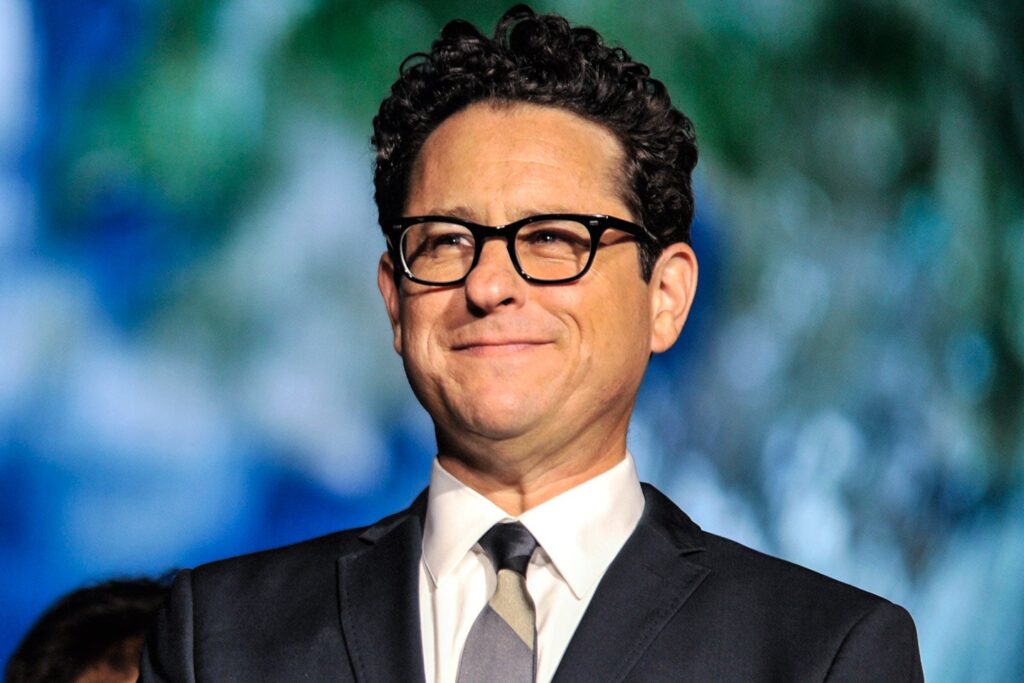Search Results for: star wars
Get your loglines in for the Logline Showdown tonight (Thursday)!!!

If you’re planning on entering the Logline Showdown, get your logline into me by tonight (Thursday) at 10pm Pacific Time! The top five loglines will be posted tomorrow (Friday) so you’ll get some instant gratification as to whether your logline made it or not.
Send me: Title, Genre, Logline
E-mail: carsonreeves3@gmail.com
Rules: Script must be written
Deadline: Thursday, March 23rd, at 10pm Pacific Time
Cost: Free
I stumbled upon Swingers over the weekend and, of course, had to watch it. What’s crazy about Swingers is that it has a really strange screenplay and, from a purely technical place, is a bad example of how to write. Yet it remains one of my favorite movies ever. That’s what gave me the idea for today’s article. The following movies are responsible for teaching me the ten biggest screenwriting lessons I’ve learned. Let’s get into them!
Swingers – Swingers is a really messy movie. It has a ridiculously long first act. The main character, Mikey, is not very active. He’s just torn up about a recent break-up. After partying it up in LA for a while, his buddy, Trent, convinces him to go to Vegas. They go to Vegas, have some adventures there, only to come back to Los Angeles and continue partying. The plot was so directionless that the editor threatened to leave the project if Jon Favreau didn’t inject some purpose into the narrative, which Favreau refused to do. Yet it still works.
What I learned: Great characters will make up for a weak plot (but never vice versa). If we like the characters, we will follow them anywhere. No matter how weak the story is, we will still be engaged because we want to see what happens to these people. So, the next time you write a script, double the amount of time you spend on creating characters. Really think about how you’re going to construct characters that the audience will love.
Ferris Bueller’s Day Off – Three friends decide not to go to school one day. Does that sound like a big concept to you? It doesn’t to me. If you pitched this idea to a studio exec in 2023, they’d politely stare back at you before replying, “Is that it?” There just isn’t enough there. Yet it has become one of the most iconic movies in cinema history. Another script in this category is Dazed and Confused. A bunch of junior high and high school students hang out on the last day of the school year. Sound like a movie to you? It doesn’t to me. Yet both movies were great. What’s going on here?
What I learned: Weak concepts can be turbocharged with very tight time frames. This was a huge one for me. I realized that very tight time frames create pressure. Pressure is conflict. Everything that happens takes on a higher significance because time is so precious. If you have a “weak” concept or “bland” subject matter, consider tightening the time frame of your movie. You’ll notice that things immediately become more interesting.
Parasite – I’m cheating a little bit because the movie that really taught me this was Star Wars. But I talk too much about Star Wars as it is (and boy do I got some Star Wars opinions coming up in this latest newsletter – sign up: carsonreeves1@gmail.com). One of the biggest dangers in writing a screenplay is monotony. Repetition. We feel like nothing’s evolving or changing in the story.
What I learned: Both Parasite and Star Wars taught me the power of a big mid-point development, sometimes referred to as “the midpoint twist.” For Star Wars, it’s when they get to their destination, planet Alderran, and the planet is gone. For Parasite it’s when they reveal that there’s a secret basement in the home with another character living there. A strong midpoint plot development (midpoint just means the middle of the screenplay) can not only shake up your story, but it helps the second half of your script feel different from your first half. Which is important because so many scripts die a slow painful death due to the fact that nothing in the story is evolving or changing.
The Hangover – The Hangover isn’t just the last giant theatrical comedy release. It contains a lesson that goes beyond comedy and encapsulates an approach that every screenwriter should be taking when coming up with a concept.
What I learned: Find a less obvious, more unexpected way into a concept. The obvious concept for The Hangover is a bunch of guys go to Vegas for a bachelor party, get into some shenanigans, and comedy ensues. That’s the way into this idea for 99 out of 100 screenwriters. Jon Lucas and Scott Moore found a fresher angle into it. What if you skipped the bachelor party and focused on the next day, with a friend missing and everyone too hungover to remember what happened the night before? Now you’ve got a concept that most writers never have a prayer of coming up with.
Hide and Seek – Hold on hold on hold on. Am I reading this right? Is Carson talking about the 2005 Robert DeNiro Dakota Fanning horror film for an all-time screenwriting lesson? Yes. Yes I am. But not in the way you think. 1999 gave us one of the most famous horror movies of all time, The Sixth Sense. That’s where this lesson begins.
What I learned: A good twist ending is almost impossible to pull off. The amazing twist ending in The Sixth Sense spurred a ton of copycats over the next decade. Every horror film was an attempt to shock you at the end. And they were all REALLY BAD. Hide and Seek has a twist ending that I don’t even remember. I just remember leaving the theater seething that I had paid money for such garbage. But it was just one in many terrible twist endings that I’d watched since the Sixth Sense’s success. I finally realized how difficult it was to write a good twist ending. So the lesson is, don’t write a twist ending unless you are 100% super clearly obviously there’s-no-way-I-can-be-wrong sure you have a whopper of a perfect twist. If there’s even a little bit of doubt in you, your twist ending probably sucks.
Inglorious Basterds – This lesson is, in part, one I learned in Inglorious Basterds, but it’s really a lesson I learned from all of Quentin’s films, cause he does it so well. It stems from the “Milk” scene that opens the script. Or the OD scene in Pulp Fiction. Or the Manson scene in Once Upon a Time in Hollywood.
What I learned: Scenes can be self-contained mini-stories. A scene is an opportunity to tell a story with a beginning, a middle, and an end. If you can embody this approach, you are unstoppable as a screenwriter because it will be impossible for your scripts to get boring. If readers are getting wrapped up in each individual scene because that scene contains a compelling story, they’ll never be able to put your script down.
Mad Max: Fury Road – People remember this film as one of the most visceral experiences they’ve ever had at the movies. Technically, I shouldn’t be including it, though, since it was constructed without a screenplay. However, there is a GIGANTIC screenwriting lesson in here that is so critical, I can’t not highlight it.
What I learned: The power of urgency. This film is the epitome of urgency. There is no free time. Things need to happen RIGHT NOW. That’s almost always when movies work best – when things need to happen right away. Not next week. Not tomorrow. RIGHT NOW. It gives your script so much energy. You may be thinking, but I’m not writing a big Hollywood movie, Carson. I’m writing something smaller. Okay, stop what you’re doing and go watch the French movie, Full Time, right now. Very small movie that has EVEN MORE URGENCY THAN Mad Max: Fury Road.
Die Hard – Perfect movie? There are about 50 screenwriting lessons you can learn from this film. But the biggest thing I took away from it was, “What a great character.” And I went about trying to figure out why I rooted for this character as much as I did. What I realized? He was insanely active.
What I learned: The more active the main character, the better. Movies love characters who are ACTIVE. Active characters push the story along since they’re always trying to achieve an immediate goal. John McClane is always trying to get somewhere, to take down someone, to get one step closer to defeating the bad guy and saving his wife. The most boring scripts I read are almost always the ones with the least active protagonists.
Titanic – Every night, in my dreams. I see you. I feel you. No amount of hate or ridicule will ever prevent me from promoting the spectacular screenwriting feat that is Titanic. Any movie that’s 3 hours-plus has an incredible challenge in front of it. How do you remain engaging for so long? Especially if you don’t have the spectacle of superheroes fighting each other?
What I learned: The incredible power of dramatic irony. Dramatic irony is when we, the audience, know something our heroes do not. Usually that they’re in danger. The reason we’re willing to hang around for an hour and a half of an, arguably, cheesy love story, is because WE KNOW THE SHIP IS SINKING AND THEY DON’T. That’s why. And that’s the power of dramatic irony. It can be used over the course of an entire movie, like Titanic, within sequences of scenes, or within individual scenes.
Fargo (the movie) – The opening scene of Jerry Lundgaard walking into a bar to set up the kidnapping of his wife with two criminals remains one of the biggest ‘ah-ha’ moments I’ve ever had in screenwriting. Because it could’ve been a straight-forward scene. But, instead, the two criminals are furious with Jerry because he’s late. And that lateness infuses the scene with this anger and disdain, elevating an average dramatic situation it into a tightly wound uncomfortable experience.
What I learned: Add conflict to your scenes! Without conflict, most scenes are just exposition. They are characters exchanging information that pushes the story forward. But if you only do that, there is no drama. You need drama to keep the reader entertained. Enter conflict. Find some sort of unresolved issue and have it play into the scene, either on the surface or under the surface. As long as there is conflict, your scene has a good chance of being entertaining.
How a screenwriting fatal flaw is silently killing all the latest Marvel movies.

Ant-Man crept over 100 million dollars for the 3-Day weekend (104 mil), saving a little bit of face, but not much (Black Panther 2 opened to 181 mil, Thor Love and Thunder to 144, Doctor Strange 2 to 187, and Spider-Man No Way Home to 260).
I was fully intending on seeing this movie. I love Ant-Man. I like Paul Rudd. I thought the first movie was clever and gave us something new. The character of Ant-Man himself is fun. His powers are weird in cool ways (he’s Ant-Man but he can turn giant??).
But leading up to this movie, I couldn’t escape all the bad buzz surrounding the film. I kept hearing troubling things about the storytelling. That it wasn’t really about Ant-Man. It was about his family. It was about Kang. They even made way for introducing one of the strangest characters in the Marvel Universe – something called “Modoc.”
I have a question. Why are you making movies that don’t prioritize your main characters, Marvel? The answer to that question is both a window and a mirror. It’s a window into the mind of Kevin Feige, the head of Marvel, and a reflection of the franchise’s current priorities.
The movies are no longer about the main characters. They’re about everything surrounding those characters, as well as what’s going to happen NEXT, in future Marvel movies and TV shows. You came to this movie to be entertained now? F U. You have to see the next three Marvel movies if you want to be satisfied.
Marvel may think this strategy is a winning one. But I’ve paid to see nearly every Marvel movie in theaters. The only two I didn’t were Thor 2 and Eternals.
So it says a lot that, despite being a character I enjoy, that this movie wasn’t worth my time. And if I – someone whose entire life exists around movies – wasn’t interested, you can bet your bottom dollar that a lot of casual moviegoers are feeling the same.
Four of the last five Disney-Marvel movies have received an RT score of under 75%. Two of those (Ant-Man 3 and Eternals) were under 50%. Contrast that with the five before that, none of which were lower than 75%. Clearly, the quality of these movies is dropping. And it doesn’t look like it’s going to get better. The Marvels (the Captain Marvel sequel) just got pushed back six months with rumors swirling that it’s unwatchable.
Why does this matter? Because Marvel is the movie business right now. It’s holding up the entire tent. If it crumbles, there goes the circus. And the way this relates back to Scriptshadow is that Marvel has embedded a screenwriting fatal flaw into all of its latest movies. For whatever reason, they are unaware of this blind spot. And if they don’t turn their head and see the car in the other lane soon, they’re headed for one of those Chips-level pile-ups.
Yes, I just referenced Chips. It’s Monday. Anything can happen.
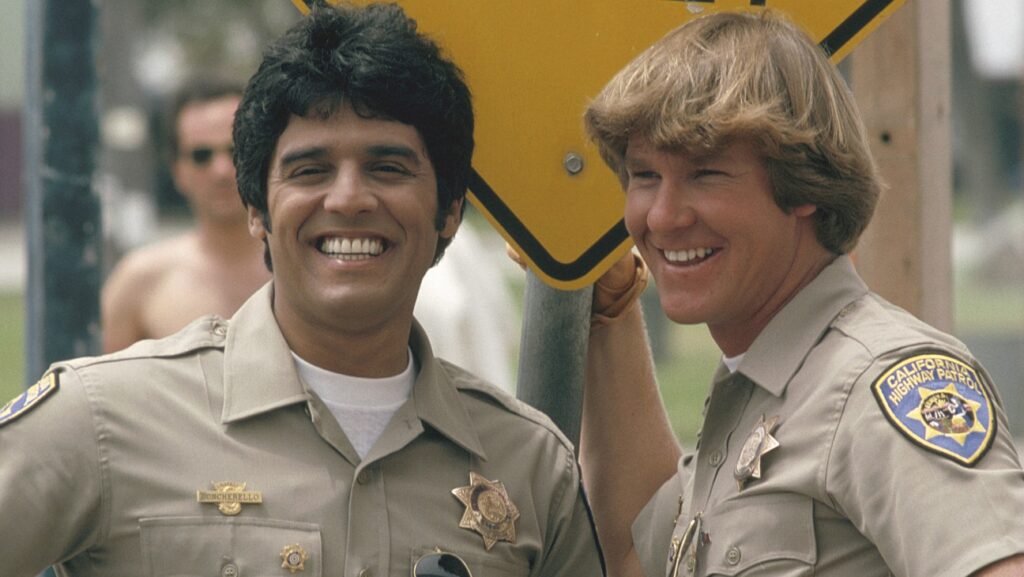
So what is this flaw?
The best screenplays are simple stories told well. Clean narratives. Clear goals. Clear motivations. A limited number of characters so that the script has time to imbue those characters with adequate flaws that can be explored and resolved. It’s no accident that the best comic book movie of the last five years – Joker – used this template to a T.
Do you guys remember the first Spider-Man franchise with Toby McGuire? The first film was good. The second film was even better. And the third film was trash. Do you remember why that film was trash? Because they famously tried to do too much. Too many villains. Too experimental (I think at one point there was a musical number). Narrative was all over the place. That movie was the epitome of what happens when you try to overstuff a screenplay.
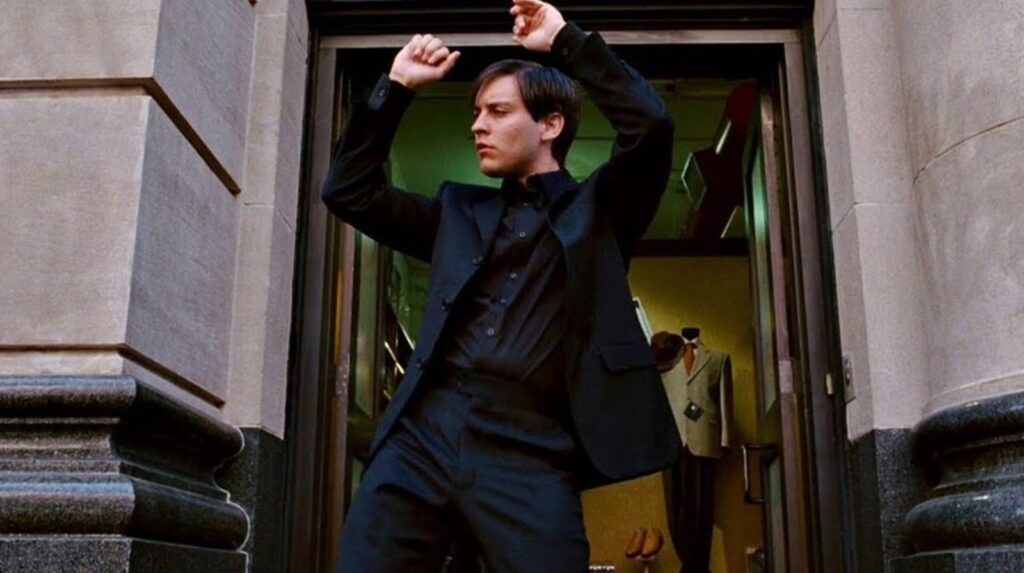
I guess that movie has now been memory-holed at Marvel. I don’t think they’re aware it exists. Because the original Spider-Man 3 has, inexcusably, become the template Marvel now uses to write their movies.
But Carson, what about Spider-Man No Way Home? That had a bunch of characters in it and it worked. True. I’m not saying the strategy can’t work. I’m just saying it’s way harder to make work. So, if you’re going to use it, you need to take the extra time required to get the script right.
This is not rocket science. If you have ten storylines in your screenplay instead of two, you will need more time to write those storylines! This is exactly what James Gunn has been saying as he ramps up DC Studios. We’re going to take that extra time and get the scripts right. The Flash looks really good even though it has a lot of stuff going on. Not coincidentally, I’ve heard that they worked crazy hard on that screenplay.
Dr. Strangelove 2 was awful. Thor Love and Bananas was awful. Ant-Man Quantum-shame-on-ya looks awful. No offense, Kevin Feige, but get your sh— together, man. What are you doing?? You’re cranking out garbage and, in doing so, you’re damaging your brand. Every Ant-Man 3 you put out makes us less confident in the next Marvel movie.
The simple truth may be that Marvel doesn’t have any stories left to tell. There have been 30 of them. Star Wars couldn’t even come up with 6 good movies. Marvel is telling three times that many and reached the point where, maybe, it can’t tell simple stories anymore. The audience wants something new, wants something different. But what if there’s nothing different left?
When you don’t have a good story to tell, you rely on gimmicks. For the regular screenwriter, gimmicks are things like writing your screenplay in the first person, or throwing a couple of forced twists in the middle of your story (the main character dies!).
For the Marvel screenwriter, gimmicks are including X-Men and Fantastic Four characters from other dimensions (Dr. Strangelove 2), or prioritizing a shocking post-credits scene over the movie itself (Eternals). Those sorts of things can be fun. But if they become more important than writing a great movie, that’s when you get into trouble. And it seems like Gimmick writing is the new strategy over at Marvel.
 Cameos like this have taken precedence over dramatically compelling plot developments.
Cameos like this have taken precedence over dramatically compelling plot developments.
The more I break screenplays and movies down, the more I realize how hard screenwriting actually is. It’s a lot like those sophisticated puzzles you used to do which had 2000 pieces. A puzzle like that takes serious amounts of time. You need to really sit there and sift through the pieces and try combinations to see if they fit, and do that day after day after day.
Then, once you get that outside edge of the puzzle figured out, you could keep filling in and filling in and filling in, until you finally put the whole thing together. Marvel movies feel like they stop working on the puzzle before that middle section is finished. The edge is in place. But the middle is still a murky mess. There are a few clumps of pieces that go together which are vaguely tossed in the middle. But it’s not enough to know what you’re looking at.
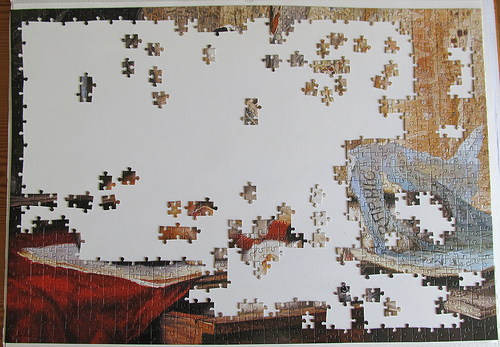
Dr. Strangelove 2 was one of the sloppiest big budget movies I’ve ever seen. And it’s because it was such a mess that when I heard even the slightest bit of rumblings about the writing in Ant-Man 3 being weak, I was out. Because I had recent proof that Marvel was getting lazy and making bad movies.
If they want to play this game where launching some dumb character named Ironheart is worth messing up the flow of their entire second act for (Black Panther 2), godspeed to you. Do that. But I’m warning you. Prioritizing the wrong things in storytelling has consequences. You did it in Dr. Strangelove 2. You did it in Black Panther 2. Now the critics are onto you. They’re not giving you breaks anymore, which is why you pulled a sub-50% RT score and the second ever “B” cinemascore for a Marvel movie. The Marvel fanbase is more forgiving. But believe me, they *will* eventually turn on you if you keep this up.
No post today. You’ll just have to enjoy the Newsletter. That’s IF YOU GET the Newsletter. And if you don’t get the newsletter, I’d highly recommend that you sign up because we’ve got a whopper for you today. I review a screenplay that JJ Abrams is involved in that is trying to do something that’s NEVER BEEN DONE IN HOLLYWOOD BEFORE. To say that he’s trying to change the very fabric of Hollywood is an understatement. The best thing about the review is I tell you whether he’s going to succeed or not.
I also talk about the DC slate that James Gunn laid out, which I think is awesome. I then discuss the Oscar screenwriting nominees. Things get heated when I start discussing Banshees vs. Everything Everywhere. We’ve got two GREAT screenwriting tips. Some of the most valuable I’ve ever offered in the newsletter. We’ve got a couple of Star Wars cameos. One in relation to JJ and another in relation to an actor whose career was thought to have been destroyed by the franchise who’s made a comeback in, what is shaping up to be, the best movie to come out of Sundance.
So, yes, there’s a lot to talk about!
And if you’d like me to send you this newsletter right now, e-mail me at carsonreeves1@gmail.com!
Over time, I’ve gotten better at knowing what movies I’m going to hate ahead of time and, therefore, not go to them. I knew to steer clear, for instance, of the “M” movies this year: Marry Me, Morbius, and Moonfall. Or flicks that had ‘disaster’ written all over them from the start – Amsterdam and Bros.
There was a time in my life, however, where I was susceptible to indie hype. The indie film world had this amazing marketing gig going whereby they insisted that whatever the latest indie film was, it was the greatest film in the world. And I bought into it every time. Despite stumbling out of 90% of the films looking like a lost turtle.
Apparently, my bad movie radar has not been perfected yet because, as you can see, I still carved out 20 hours of my life to watch these duds. Let me know what you think of my picks and, of course, share you own Worst 10 in the comments sections. I’m curious to see what you guys disliked.

10 – A Christmas Story Christmas – As someone who religiously studies screenwriting, one of the things that frustrates me to no end is when a writer does everything technically right and, still, the result is flat. A Christmas Story Christmas should not have been as boring as it was. It’s a fun take on a sequel. The original film showed the quirkiness of Christmas through the eyes of a child. The sequel showed it through the eyes of a father. The script does everything in its power to create a main character who’s struggling in life and who has a fatal flaw he must overcome. Just like the original film, we have a wacky cast of characters meant to keep the story continuously entertaining. And yet it all lands with a giant thud. I suspect, like most scripts that never get off the ground, the problem started with the main character, specifically that seeing a holiday through the eyes of an uncynical child is a lot more entertaining than seeing it through the eyes of a cynical adult. I’m not sure the movie ever overcame this handicap. A lot of screenwriters are making this mistake recently. They’ve been handed these older legacy characters and try to make them the hero in a movie that, traditionally, would not have them as the hero. One of the most lifeless movies of 2022.
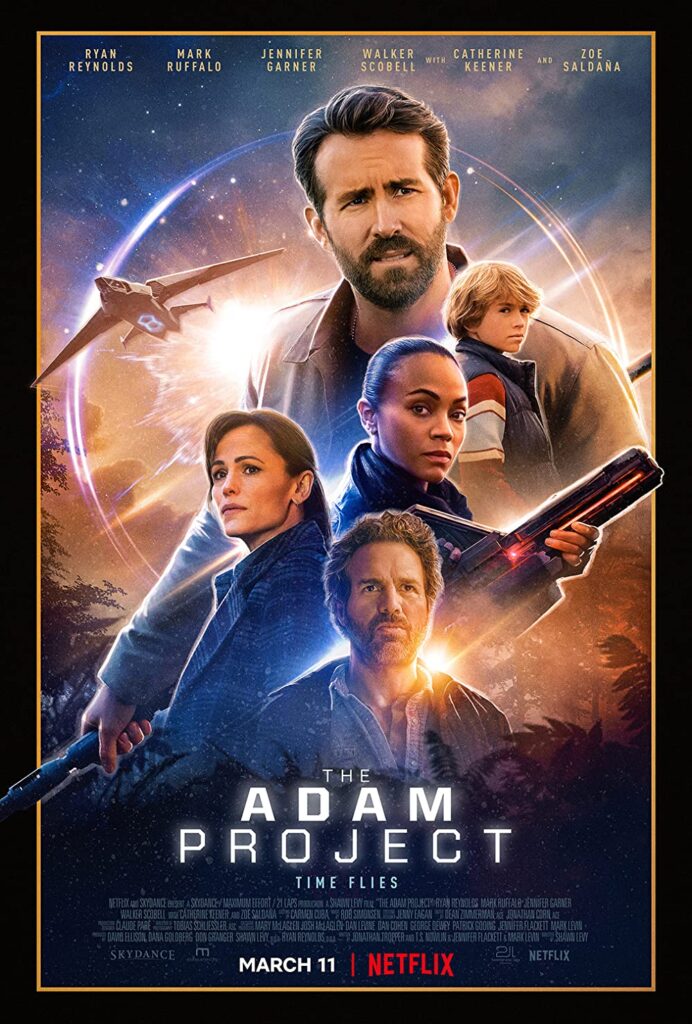
9 – The Adam Project – I debated whether to put this one on the list. There is passion in the way this movie is put together. Ryan Reynolds truly wanted to make a Back to the Future for this generation. But the screenplay makes a classic Scriptshadow mistake, throwing everything and the kitchen sink at the story, and, as a result, creating a movie that’s all over the place. I’m not even sure who the main character is. Is it young Ryan Reynolds? Is it old Ryan Reynolds? The movie definitely suffers from an inability to understand whose eyes we’re supposed to be experiencing the adventure through. Can you imagine Back to the Future if it was unclear whether Marty or Doc was the main character? And Adam’s problems don’t stop there. There’s a ton of weird time-travel nonsense going on, which only gets in the way of a story that’s already got a lot to keep track of. A writer needed to come in and streamline the heck out of this thing.
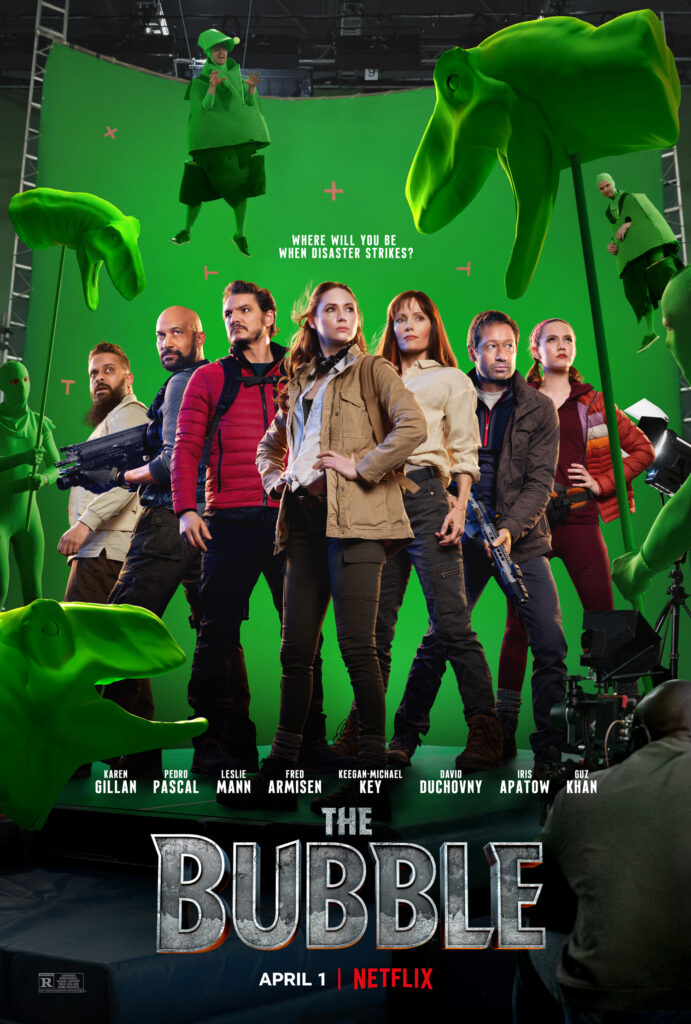
8 – The Bubble – Say what you will about Judd Apatow. He was the last guy in America to consistently pump out feature comedy films that brought masses to the theaters. Since him, comedy has descended onto streaming channels. The Bubble proved one valuable piece of info to me – which is that nobody wants to watch movies about Covid ever again. Bo Burnham’s Covid film was great. And that was about it when it comes to good Covid films. This topic brings back feelings of depression and anger, with everything that went on during those two years. Who wants to experience that again? Not me. With that said, this movie did start to find its groove toward the last 45 minutes of the film where the characters legit started going crazy. Apatow seemed to finally figure out what his movie was about. But it was too late.

7 – Thor: Love and Thunder – The badness of this film hits me once in the gut and once in the face. Because, before this movie came out, I thought director Taika Waititi was going to be the savior of Star Wars. But this movie was so bad – and it only gets worse in your memory – that I’ve lost a considerable amount of faith in Taika. The film continues to perpetuate the Mary Sue myth, turning Natalie Portman into a God cause, um, cause women kicking butt is the number one priority for Hollywood films in 2022? The film also felt considerably low-stakes. Its biggest sin, however, is wasting a great performance by Christian Bale. This might’ve gone down as an all-time performance had the film not been so bad. This script also taught me that comedy needs boundaries. It can’t be “anything goes.”
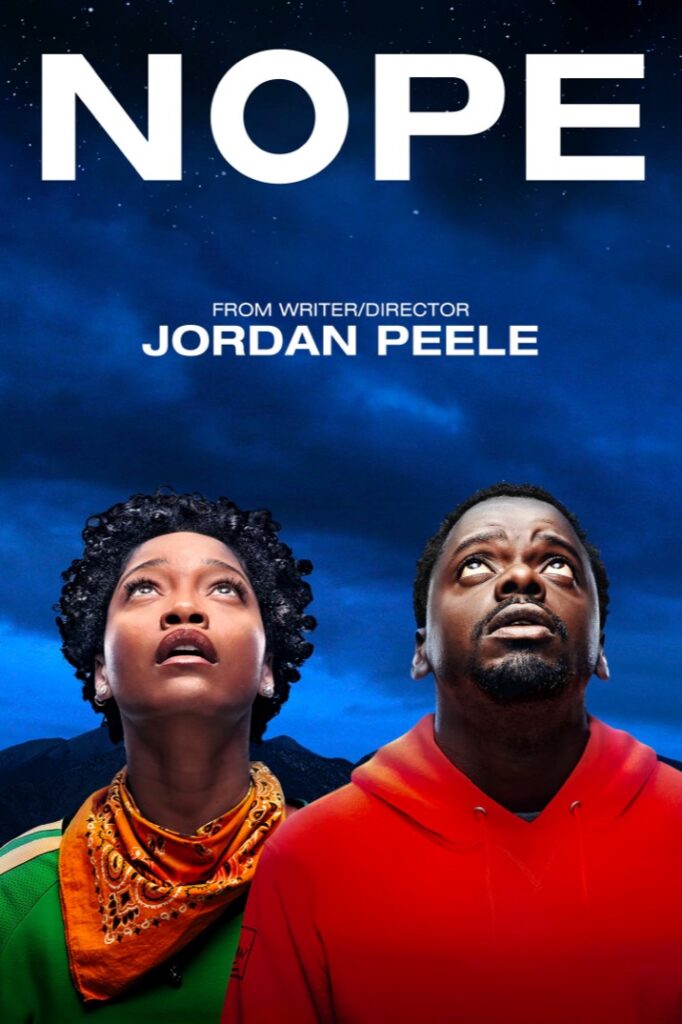
6 – Nope – Yep. Whether you want to admit or not, Peele wrote and directed an awful movie. The number of flaws in this story is endless. The third act alone has more “wait a minute, what?” and “WTF” moments than a 1983 Saturday morning cartoon episode. The more I look back at this film, and knowing what I know about Peele through the interviews he gave, the more convinced I am that he spent an entire year high as f—, writing and directing this movie. It’s the only thing that makes sense considering how sloppy it all is. The movie’s climactic moment is a desperate attempt to photograph an alien ship with a fake amusement park water well camera, despite the fact that the alien ship is going to crash into the ground any second and be accessible for the whole world to see and take pictures of. Oh wait, the alien ship can’t be filmed on a digital phone (/eyeroll). Only physical film. Cause, um, yeah, those are the rules. What even was this movie??? A complete and utter clustrf—k of ideas conceived during copious amounts of weed-smoking. If you want to go smoke weed and make wacky short films with your buddies that you post on Youtube, like Donald Glover used to do, great. I’m all for it. But if you’re asking us to pay 20 bucks to see your film, do us the dignity of sobering up and thinking through your narrative and your rules so that the story you put on paper actually makes sense.

5 – Dr. Strange and the Multiverse of Madness – As soon as they introduced the random Latina superhero sidekick who had absolutely zero chemistry with Dr. Strange, I knew this movie was doomed. But somehow it doomed itself even more, turning an alternate version of its main character into a zombie, despite the fact that nothing at all in the rest of the movie was equipped to handle a zombie character. But the biggest issue of all was that the movie squandered a fun idea. You’re on a road trip between multiple universes. You could’ve had so much fun creating all these different worlds. And yet that part of the script was relegated to a tiny 10 minute section. It was bizarre. One of the messiest movies I saw this decade. And that category is quite crowded these days.
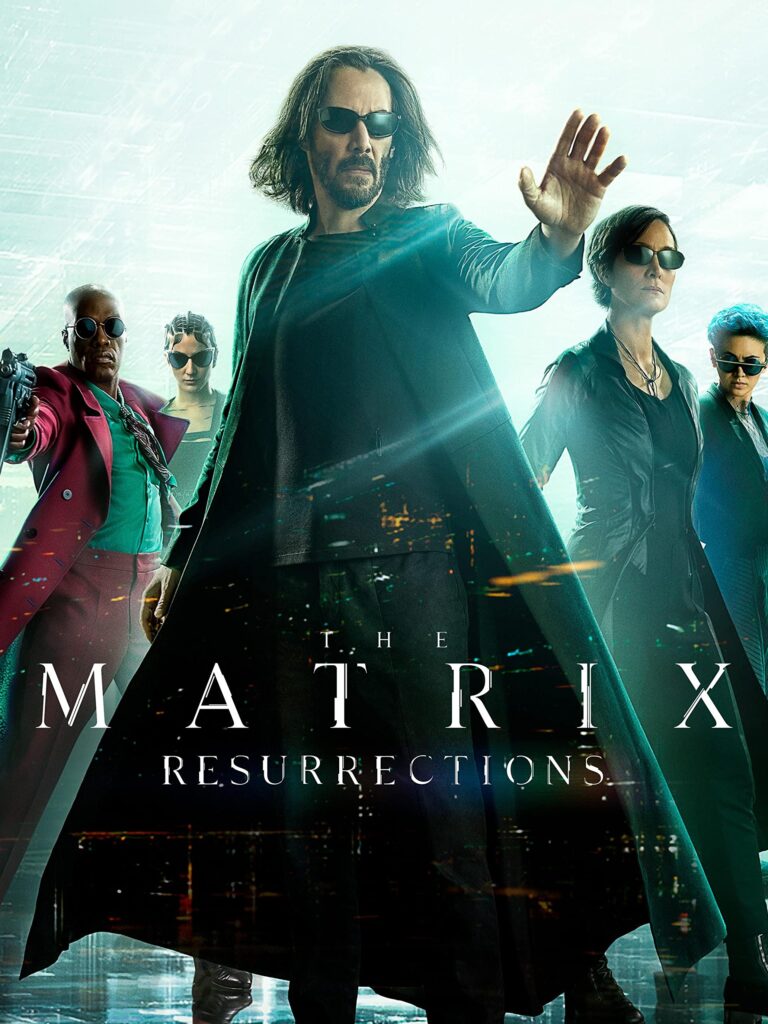
4 – Matrix Resurrections – In retrospect, I know why this movie was so bad. Lana Wachowski said that, as they were shooting the film and Covid hit, she considered it a blessing in disguise because it meant she didn’t have to finish the film. Reading the subtext of several other interviews she gave, Lana seems to have been bullied into making the sequel. It was not something that was high on her priority list. It goes to show how important pure unadulterated passion is to writing and making movies. Screenplays and films are not forgiving mediums if you’re only kind of into what you’re doing. You have to be beyond passionate. Which is why Avatar 2 is such an experience. That is a movie made by someone obsessed with making that movie. Resurrections started out okay. It had some interesting ideas. But just like anything that you’re not giving 100% to, it eventually falls apart. There’s this moment midway through the film where a big fight is taking place and one of the characters from the former films, the Merovingian, is randomly screaming out obscenities, and you’re just sitting there wondering, “What is happening right now?” It’s so bad.
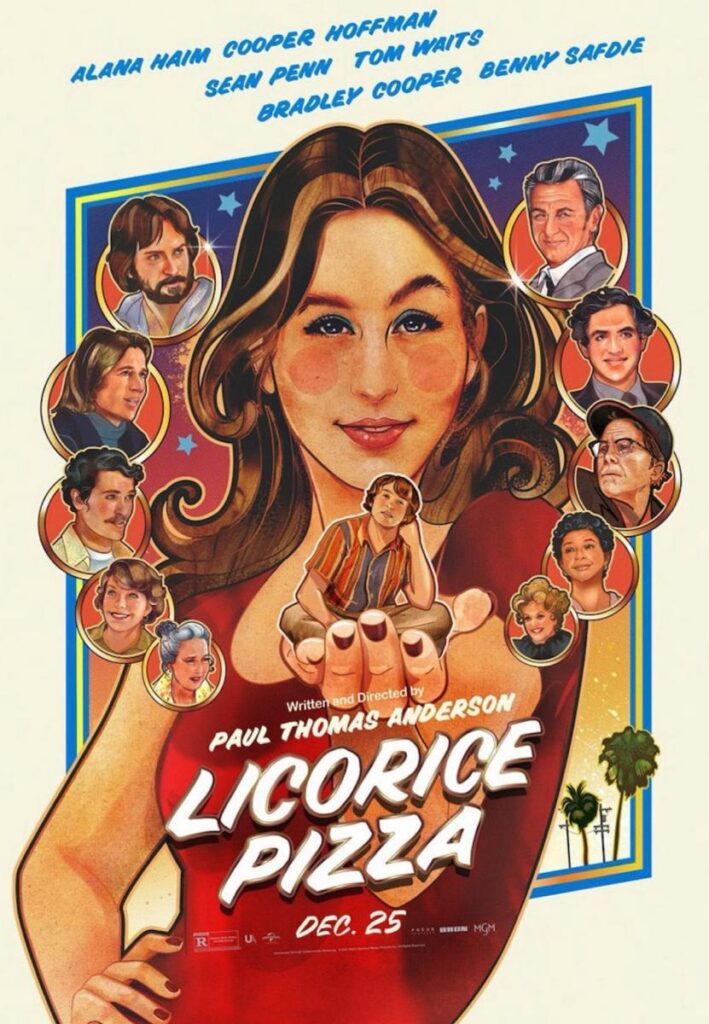
3 – Licorice Pizza – I know this was technically released last year but I watched it this year. I apologize to all of the Paul Thomas Anderson lovers out there. But I seriously question whether the modern day version of this man has any talent at all. His last good movie was There Will Be Blood. What has he done since? The Master, which was average at best. The Phantom Thread, which managed to be so uninspired that, despite having the greatest living actor in the world in it, no one watched it. Inherent Vice, whatever the heck that was. And now this movie. Which is so nonsensical and so devoid of a clear narrative, that you almost think Anderson is playing a joke on you. I kid you not, one of the plot developments is our high school main character opening a mattress store. That’s not a misprint. That actually happens. Literally, nothing in this movie makes sense. It’s so agonizingly bad. I will say, however, that, Alana Haim’s performance was good. I hope to see her in more films. And the main kid is a good actor as well. But there’s no story here for them to work with. At least not one that makes any sense. I say this with complete conviction – if this script appeared on Amateur Showdown, it would finish with the least amount of votes.
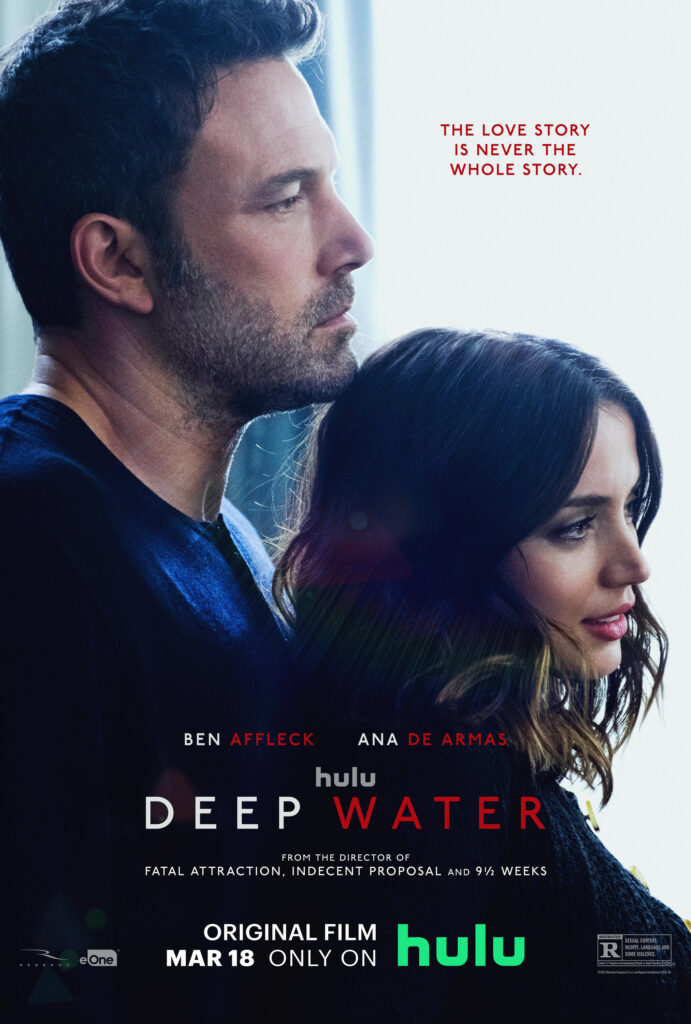
2 – Deep Water – For as confusing and untethered as Licorice Pizza was, it doesn’t hold a candle to how dumb, clunky, and amateurish Deep Water is. It’s movies like this that make me wonder if anyone in Hollywood knows anything. Here you have Ben Affleck, who is considered one of the smarter actors in Hollywood. He’s also on the A-List. So he gets sent the best of the best material. And he chose to make this movie?? If you have Hulu, I want you to go watch the first 20 minutes of this film and report back to me on whether you have any idea what’s going on. Cause I sure didn’t. And if you can manage to be that confusing in the opening of your film, you have a special kind of talent for being awful. There isn’t a single story beat that makes sense in these first 20 minutes. How did anybody allow this movie to happen???

1 – Spiderhead – I said it at the time. Spiderhead is an example of the worst thing about Hollywood. Which is that the industry is more interested in getting movies made than making good movies. To a certain extent, I understand this. It’s so hard to get films made that, if you have something that can get made, despite its low quality, someone will make it, because nobody wants to leave free money on the table. But boy is Spiderhead a cautionary tale on what happens if you let that philosophy guide you. Reese and Whernick were hot writers. They’re shepherding the Deadpool franchise. They had an old dusty script in their drawer. It was terrible but their agency and the studios knew they could get it made with their names on it. So they put the package together and made the thing without ever asking why anyone would want to a make a movie where not a single scene in the screenplay makes sense. I mean, this is a movie about a corporation forcing tests on its patients where the patients can just waltz up to the control room any time they want. I’m sorry but if those are the rules of your story, you’re not writing a movie. You’re writing garbage. Everything from the concept to the mythology to the timeline that was chosen to tell the story in ensured that you left this movie enraged that you wasted two hours of your life. This movie is the epitome of awful.
Tomorrow, I share my 10 favorite movies of the year. And a couple of them are going to surprise you!
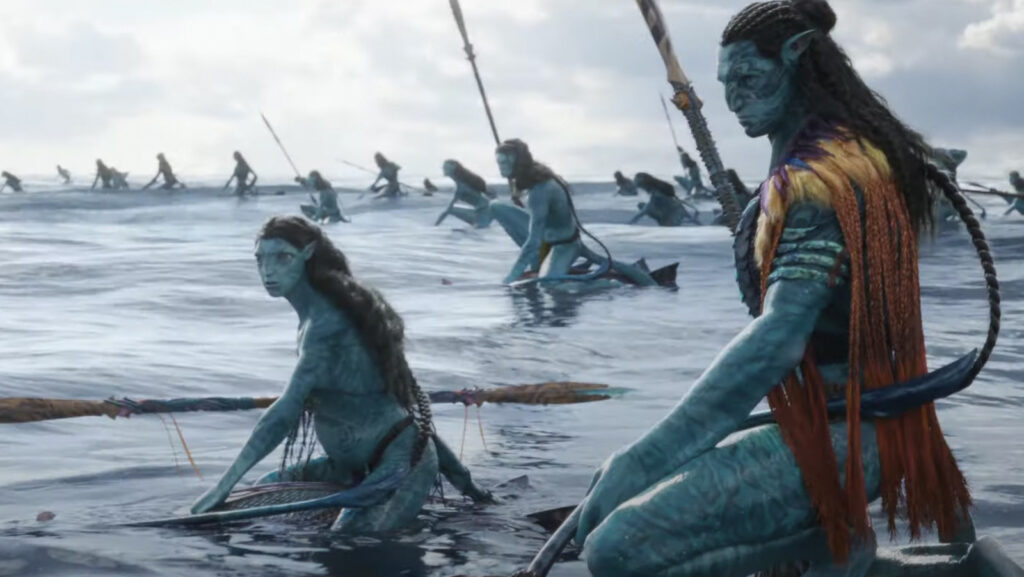
You may not know it yet.
But the movie industry is shifting radically right in front of our eyes.
This recent month has been a particularly shaky chapter in the ongoing seismic shift, as the past, present, and future are, like a big-budget movie, all colliding.
Let’s start with the past.
Black Panther 2 just limped over 400 million domestic this weekend. Next week it’s going to lose all its screens to Avatar 2. Which means it’s not going to earn that much more money. 400 million sounds like a lot… until you point out that the first movie made 700.

There’s a bigger issue here, though. Which is that Marvel Phase 4 was a bust, and BP2 the exclamation point. The quality of the movies in this past phase has gone down dramatically. This isn’t just my opinion. Go check out the ratings for the films over on Rotten Tomatoes. All the recent movies – Black Widow, Dr. Strange 2, Love and Thunder, Eternals – find themselves in the bottom third of the rankings.
While there is no one thing that has caused this, something I suspect is having a bigger influence on the movies than people realize, is the special effects. All of the special effects in these movies look exactly the same. Go watch the trailer for Guardians 3 and then Ant-Man 3, and tell me the movies don’t look exactly the same.
From what I understand – and somebody can correct me if I’m wrong – all the Marvel special effects are done separate from the director’s vision and are created by Marvel’s special effects team.
This means that directors are not getting to direct the most important scenes in their movies. That’s left to the special effects team. And those guys don’t have the level of creative vision that movie directors do. So, naturally, everything looks uninspired and samey.
This is a big deal because Marvel has been the only thing holding up the movie industry. Nobody’s going out to see movies that aren’t Marvel. So if Marvel doesn’t figure how to inject some life back into their films, we’re either going to have a dead industry or a wide open gap for some visionary to come in and fill it with a new direction for theatrical film.
That brings us to the present and the upheaval that’s going on with Marvel’s main competitor, DC.
James Gunn has taken over DC and he just made a huge controversial decision by axing Wonder Woman 3. Let’s take a second to acknowledge just hot brutal this town can be. One second, Patty Jenkins burst onto the scene with the unexpectedly fun Wonder Woman, whose success she uses to nab a Star Wars movie. Then, three years later, she’s been kicked off both the Star Wars and Wonder Woman franchises. That’s how quickly things can change here! You’re never safe!
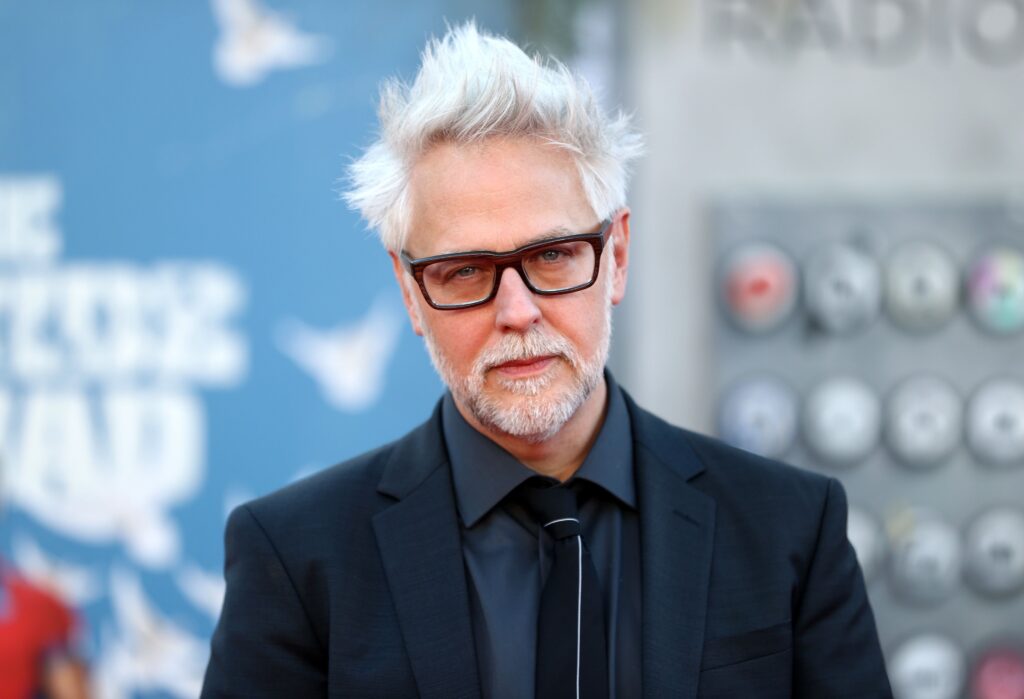
Back to Gunn, who is making some tough choices due to the fact that DC has been a mess from the start. This whole weird decision to fractionate the franchise and create separate pockets of movies that don’t have anything to do with each other – it was a bizarre strategy. Gunn wants to unify everything and I, along with the rest of the fan base, say “Thank God.”
But now he’s got some tough decisions to make because what do you do with Batman? On the one hand, Reeves’ film did pretty well. On the other, you want to start with a fresh slate. If you bring anything from the past regime into the present, you risk bringing that faulty blueprint with you. You probably need to start from zero. But there’s enough Hollywood politics going on that this decision won’t be easy for Gunn. He doesn’t want to alienate the entire industry. So it’ll be interesting to see what he does.
In my opinion, everything starts with a good Superman movie. If you get that right, you can build off it. Go back to Superman’s roots. Don’t make him dark and mysterious like Batman. Make him like Superman. Fun. Optimistic. Kind. Fights for good. And then create a situation that makes it hard for him to be all those things. That’s Screenwriting 101. And as much as I love JJ Abrams, I’m begging Gunn to axe his Superman project. The last thing we need is some message Superman movie. We need to focus on making a GOOD Superman movie.
That brings us over to a topic I’m uncomfortably familiar with, which is the Star Wars franchise. Star Wars is on the cusp of going through a revolution of its own with the return of Bog Iger as Disney president. We know Iger, like Gunn, is rethinking his company’s strategy. And that could mean finally getting rid of Kathleen Kennedy, the current head of Lucasfilm.
I know this – people can say they love Andor all they want. Nobody’s watching the show. It’s not just absent from the Top 10 streaming shows. It’s absent from the Top 10 ORIGINALS streaming shows. That’s brutal. That means nobody’s watching this thing.
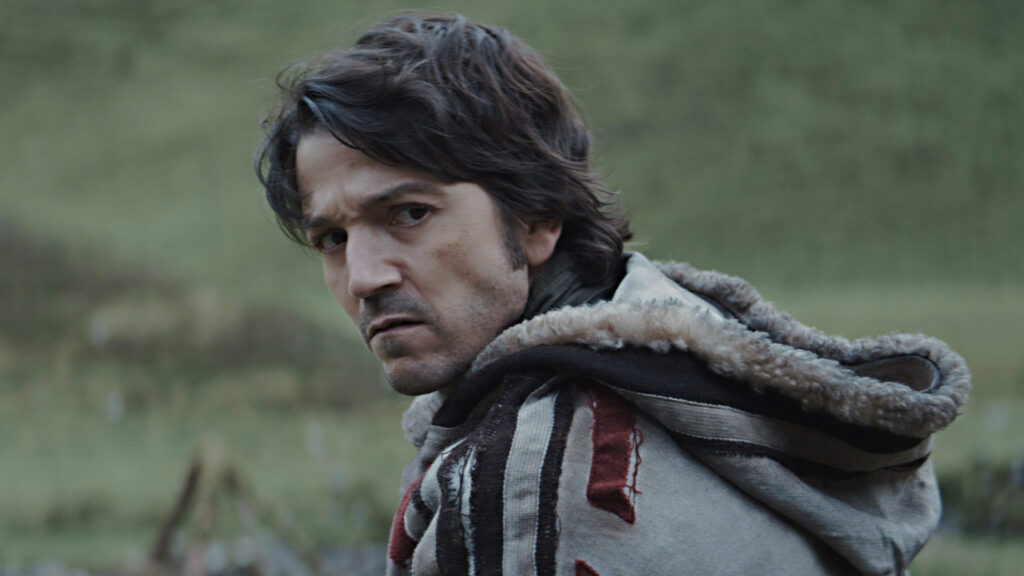 Luna’s ubiquitous expression would come to be known as “The Scowl of Boredom.”
Luna’s ubiquitous expression would come to be known as “The Scowl of Boredom.”
And it’s very damning for Kennedy. Because it shows that she can’t get the fun Star Wars stuff right (Kenobi) and now she can’t get the serious stuff right. She’s never understood Star Wars. And she’s finally on the verge of killing it. The only thing holding up Star Wars at the moment is The Mandalorian. You might even go a step further and say the only thing holding up the franchise is Baby Yoda. That should be terrifying for Star Wars fans. Cause as much I love Baby Yoda, his character doesn’t have the weight to hold up an entire franchise.
Iger probably has a few more important things to take care of before he gets to Star Wars. But when he does, I pray that he cannonballs onto the reset button and gets somebody in there who understands Star Wars and cares only about one thing – making great Star Wars content.
Finally, we have the future. And the future starts next weekend with the release of Avatar 2. We – as in we the industry – need this movie to do gangbusters. Cause, right now, the box office is in flux. It hasn’t proven that it can get back to pre-pandemic numbers. If there ever was a movie that could change that, and also spring us into 2023 with optimism, it’s Avatar 2.
![]()
I know I’m going to be there Day 1, first showing, giant tub of popcorn on my belly. Okay, maybe I don’t eat popcorn. But spiritually, I’ll have a giant tub of popcorn. And I’m going to be rooting for this movie to be amazing and bring everyone back to the theater. Because Avatar is bringing something back that we haven’t had for a long time, which is a UNIQUE EVENT.
We get a new Star Wars show every month. We get a new Marvel movie every week. We don’t see these things as special anymore. But Avatar is special. The last one was 13 years ago. Not only that. But Cameron has SLAVED over this thing. Every single frame is going to be perfect.
Do we still need a good script for it all to matter? Yes. But you can’t say Cameron hasn’t done the work. He wrote out 800 pages of notes for the overarching story and disseminated them between a team of five writers who then went off to write the scripts. And, unlike Marvel, and the rest of Hollywood, Cameron didn’t start shooting until the scripts were ready. So whatever story we get, it won’t be through lack of effort.
I also think that if Avatar 2 does well, it will change the industry. Cause Avatar doesn’t fit the current model of making movies. So if it’s good and if it kills at the box office, maybe the industry starts trying to make some new original franchises, and does so by working on them for years as opposed to 18 months. Make the movie great, not decent.
I’m so pumped for this film. I’m bursting at the seams. Just five days left. It’s going to be so cool!

